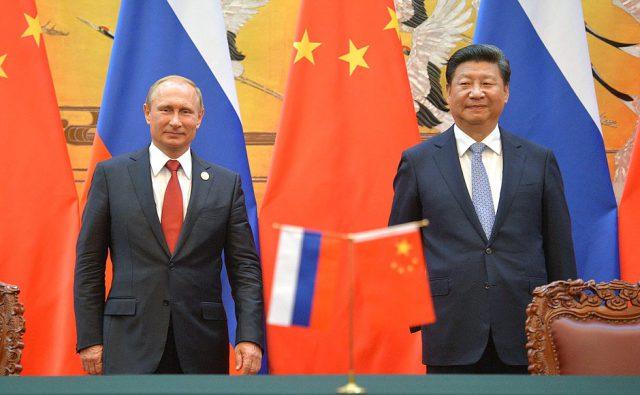Life less joyous
Posted By Henry Ergas on April 21, 2018 @ 09:00
In a recent article in The Australian, Peter Jennings characterised the Putin regime, along with those of several other authoritarian leaders, as ‘Leninist’. This seems to me both historically inaccurate and unhelpful in understanding the nature of the regimes at issue.
The term ‘Leninism’ is no doubt capable of several interpretations. Nonetheless, if there’s an element that was repeatedly stressed by Vladimir Lenin himself, it was the central role of the revolutionary party, both as the vanguard of the working class and as the prime agent in the construction of a new social order.
Virtually every aspect of Lenin’s mature thought followed from that emphasis, including the key concepts of democratic centralism, the ‘correct line’ and the nature of the class struggle under socialism. It was, moreover, the defining element of Leninism as it was perceived by his closest comrades. The Belgian Trotskyite Marcel Liebman, in his fine intellectual biography of Lenin, wrote:
it is hardly an exaggeration to say that Lenin’s chief contribution to the political reality of our time was his creation of the Bolshevik Party [as] the tool for making revolutions.
Reflecting that emphasis on the centrality of the party, a Leninist regime is first and foremost a form of one-party state. That state is inevitably beset by constant tensions between the inconsistent elements of its ideology, notably the contrast between the bureaucratic, inefficient and corruption-prone nature of the party and its revolutionary pretensions. Despite those contradictions, the party itself provides for political continuity and defines a ‘selectorate’ that can manage leadership succession.
None of those features is present in the Putin regime, which is characterised by its high level of political informality. It’s clear that Putin himself has little interest in building a stable political party, which—among other threats—could provide a foundation for eventually replacing him.
Nor is Putin alone in that respect: it’s difficult to find anything that approximates conventional political parties in any of the other authoritarian successor states to the former USSR, much less a vanguard or cadre party of the Leninist kind. Even in successor states such as Azerbaijan and ‘the Stans’, where there was a very high degree of elite continuity from the USSR to independence, there’s no trace of a modern party structure, with power being shared—in a more or less unstable arrangement—between rival clans.
Rather, regimes such as Putin’s or those in most of the successor states are ‘personalist’ forms of authoritarianism (albeit of varying degree of repressiveness), much like the so-called small dictators who flourished in Central and Eastern Europe in the inter-war years. Indeed, that personalist character shapes both the nature of their on-going governance and the types of political crises to which they are subject.
In particular, the absence of any effective party structure that could buttress power in these regimes makes them heavily dependent on the charisma of the leader and increases their instability whenever the leader’s popularity declines.
It also makes it difficult for them to manage intra-elite conflicts and assure orderly leadership succession. When those difficulties become acute, ‘colour revolutions’ become likely, giving rise to short-lived bursts of liberalisation before the personalist style of rule re-establishes itself.
A more challenging question is whether China remains, in any meaningful sense, a Leninist state—as is arguably true of Cuba and Vietnam. The emphasis now being placed by Xi Jinping on strengthening the primacy of the party certainly suggests it is; but it’s Leninism entirely shorn of its revolutionary aspirations.
One indicator that suggests the persistence of that Leninist quality is the recurrence of cycles of reform and recentralisation, with the reform stage being denounced in the recentralisation stage as having weakened the role of the party and compromised the quality of its cadres. That cycle was evident in (what became) the CPSU as early as 1921, when the first ‘purge’ was launched (at a time when the term ‘purge’ hadn’t yet developed negative connotations).
It was at the heart of Lenin’s famous “Better fewer, but better” anti-corruption drive. And it became even more pronounced in the virulent reaction that followed the New Economic Policy of the 1920s, when the party—faced with the emergence of private wealth—moved to seize back control.
Equally, in China, that cycle began almost immediately on the CCP’s conquest of power, reaching a first peak in the Three-anti and Five-anti campaigns of the early 1950s. It has since recurred regularly, with particular ferocity in the immediate aftermath of the Great Proletarian Cultural Revolution.
What nonetheless makes China intriguing is that stripping away the revolutionary aspirations deprives the party of any clear basis for legitimacy. This is, in other words, Leninism without Marxism. Shorn of the eschatology of a glorious future that justifies the suppression of freedom, it can only legitimate itself by delivering ever-higher living standards. But rampant corruption, growing income inequality and rising economic insecurity all undermine the Chinese leadership’s claim that—as Stalin notoriously said in 1935, just as another set of purges loomed—‘life has become more joyous’.
In short, Leninism isn’t a synonym for authoritarianism. It’s a particular type of party-centred authoritarianism in which its combination of messianic pretensions and bureaucratic realities makes it subject to stresses and crises that differ from those of other authoritarian regimes.
Understanding those peculiarities, and contrasting them to the stresses and crises characteristic of other authoritarian regimes, is important if one is to analyse the future of regimes such as Vladimir Putin’s.
Article printed from The Strategist: https://aspistrategist.ru
URL to article: /life-less-joyous/
Click here to print.
